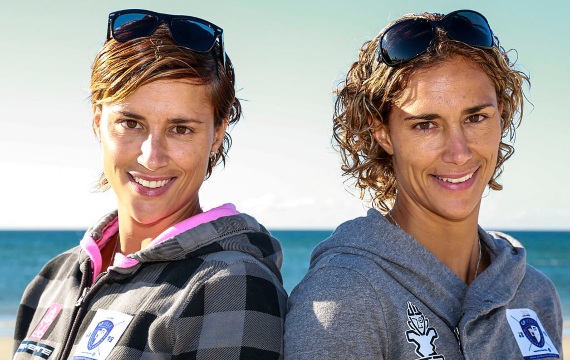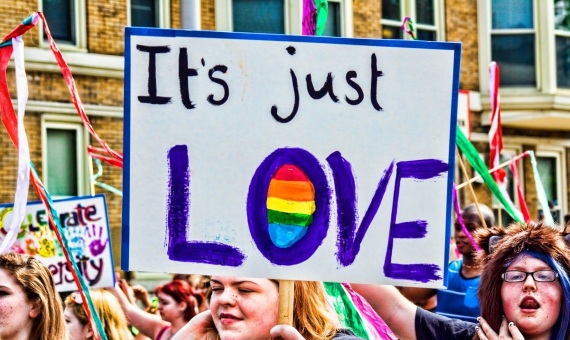Ever since Charles Darwin taught us that we are just another species in the natural order, science has tried to unravel what specifically makes us human, what we all have in common. But at the same time, scientists continue to investigate what makes us diverse, from physical traits or personality to our sexual orientation. And while much remains to be learned about the latter, modern science suggests that it is a complex interaction of biological factors that determines whether we are attracted to people of our own sex, the opposite sex, or both.
In 1993, Science published a study by the U.S. National Institutes of Health that found in 40 pairs of siblings a relationship between male homosexuality and a certain region of the X sex chromosome. The magazine itself published a commentary entitled “Evidence for Homosexuality Gene,” and the media immediately echoed what came to be called the “gay gene”. However, further research failed to confirm this presumed finding. In 1999, another study in the same journal concluded: “These results do not support an X-linked gene underlying male homosexuality.” On this occasion, Science published a new commentary: “Discovery of ‘gay gene’ questioned.”

The hypothesis of one or more specific homosexuality genes has been widely abandoned, and today it is considered an unfounded myth. But at the same time, this does not imply that sexual orientation is completely devoid of genetic factors. In fact, studies with identical and fraternal twins reveal that identical twins more often share the same sexual orientation than fraternal twins, indicating a certain genetic component, although to delve deeper into this seemingly subtle influence it is not sufficient to analyse the genes of just a few dozen people—populations of hundreds of thousands are required.
The link with genetics
With this idea in mind, an international team of researchers led by Brendan Zietsch of the University of Queensland, Australia, gathered nearly half a million genetic profiles from the UK Biobank and the Californian company 23andMe, and subjected them to a genome-wide association study (GWAS) to try to identify genetic variants that could be linked to homosexual behaviour in both men and women.
The study, published in Science in 2019, finds that “same-sex behaviour is influenced by not one or a few genes, but many.” The paper identifies five chromosomal regions whose variants appear with a more significant frequency in sample subjects who said they had same-sex relationships. The researchers warn that the link between genetics and homosexual behaviour continues to be very complex, since the variants differ between men and women, without also detecting an association between the presence of more or fewer of these genes and a greater or lesser proportion of homosexual relationships.
The link is not only complex, but also weak. According to Zietsch and his collaborators, the influence of the genes discovered is between 8% and 25%, which means, as the researcher confirmed to OpenMind, that between 75% and 92% of homosexual behaviour does not depend on genetic components. However, this does not imply that there are no other biological factors involved. Zietsch alludes to an idea that is currently being looked at by numerous experts: “Prenatal hormonal concentrations in the womb are hypothesised to influence sexual orientation.” In contrast, there is absolutely no indication of an educational influence.
But if there is one thing the authors of the study stress, it is that the genetic variants identified “do not allow meaningful prediction of an individual’s sexual behaviour.” And yet, shortly after the publication of the paper, a company called Insolent AI launched an app called: How gay are you? which claimed to predict a person’s degree of homosexuality based on their genetic profile and in accordance with the study data. The app provoked widespread repulsion and was withdrawn after geneticist Joseph Vitti of the Broad Institute of Harvard —one of the institutions participating in the study— started a petition on change.org for its elimination.
A double-edged sword
Vitti, an activist with the LGBTQIA+ community, wrote on the Broad Institute blog: “I have yet to see a compelling argument that the potential benefits of this study outweigh its potential harms.” The truth is that these investigations arouse misgivings, even though the existence of a biology of sexual orientation is increasingly supported by science. “To my knowledge, there are no data supporting the assumption that sexual orientation and gender identity are determined by psychosocial environmental factors, so I therefore personally presume both phenomena to be substantially influenced by biological and genetic mechanisms,” Elke Smith, a neuropsychologist at the University of Cologne (Germany), who studies the cerebral traces of sexual differences, tells OpenMind.

Moreover, given that the most conservative sectors of morality have been based on the prejudice that orientations other than heterosexual were the product of fashions or lifestyle choices, the existence of a biological basis should be an argument in favour of tolerance. However, experts recognise that this is a double-edged sword. As Oxford University sociologist Melinda Mills wrote in the journal Science, in a commentary on the study by Zietsch and his collaborators: “Attributing same-sex orientation to genetics could enhance civil rights or reduce stigma. Conversely, there are fears it provides a tool for intervention or cure.”
The ambivalence is also manifested in the effects these scientific findings have on the public. There are studies that document an improvement in the attitude towards homosexuality in people who receive information about this influence of biology. But curiously, there are also studies that show just the opposite.
Meanwhile, Zietsch and his collaborators are so aware of the concern surrounding these investigations that they have participated in talks and workshops with the LGBTQIA+ community and have even created a website dedicated to explaining their results. For the scientist, it is fundamental to separate knowledge from moral issues. “Were we to avoid studying sexual preference or other such topics due to political sensitivities, we be leaving these important aspects of human diversity in the dark, and I don’t think that would be good for anyone,” he argues. For the researcher, what should take precedence over all this is that, “as a society we have decided that individuals should not face discrimination or stigma based on their preference for same-sex or opposite-sex partners or both.”
Comments on this publication